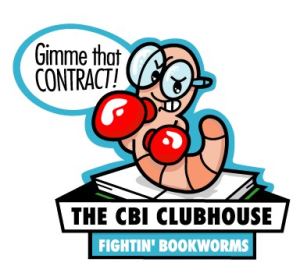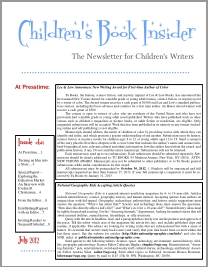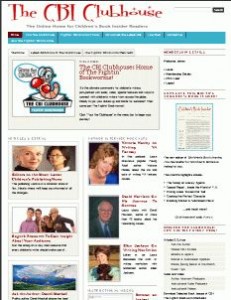
If you've been thinking about subscribing to Children's Book Insider, The Newsletter for Children's Writers, joining the Fightin' Bookworms of the CBI Clubhouse and getting your hands on all the children's writing goodies we offer, your big moment has arrived!
For one week only, we're making public a special private offer we recently made. It's as good a deal as we've ever offered. How good? How about more than half off the total value of the package!
Here it is:
- One year (12 issues) of Children's Book Insider, the Newsletter for Children's Writers (electronic edition). This is the acclaimed newsletter we've been publishing for more than 20 years, and it's helped countless aspiring writers get contracts. Quite frankly, if you're at all serious about getting published, you need to be reading CBI every month.

- Full access to the CBI Clubhouse (http://cbiclubhouse.com), loaded with audio, video, ebooks, articles, message boards and much more.

- Full, unlimited access to the CBI Back Issues e-Archive, featuring every issue of CBI from 2001-2009! That's 108 issues of CBI!

- Full access to the CBI Challenge - our step-by-step writing course that takes you from story conception straight through publication.

- AND, just to make it a complete no-brainer, a free download of "I Wish Someone Had Told Me That! 64 Successful Children's Authors Give You The Advice They Wish Someone Had Given Them". This is a *great* ebook and it's yours free as part of this holiday special.

That's more than $85 worth of killer for info for...
...are you ready?....
$37.95.
No kidding.
There's only one catch - this offer is *for this week only* and *only* for the nexy 75 new subscribers to reply. First come, first served.
So don't put this off. Go to http://bit.ly/cbicyberspecial now!
"This resource is incredible! What a bargain. Best use of my money this year."
Judith
"I never imagined I would find a website that contains FULL INFORMATION of how to start writing for children! It's like attending an online children's literature college. I'm having so much fun. I feel very blessed to have found the CBI Clubhouse!"
Emy
"This site is uber superb! I can barely keep up with all the stuff you give us each month. I am finding all sorts of great information to improve my writing. I can’t wait to see what you will offer next!"
Peg
Interested in learning how to write a book and send it to children's book publishers? Come on over to The CBI Clubhouse for audios, videos, insider writing tips and much, much more!